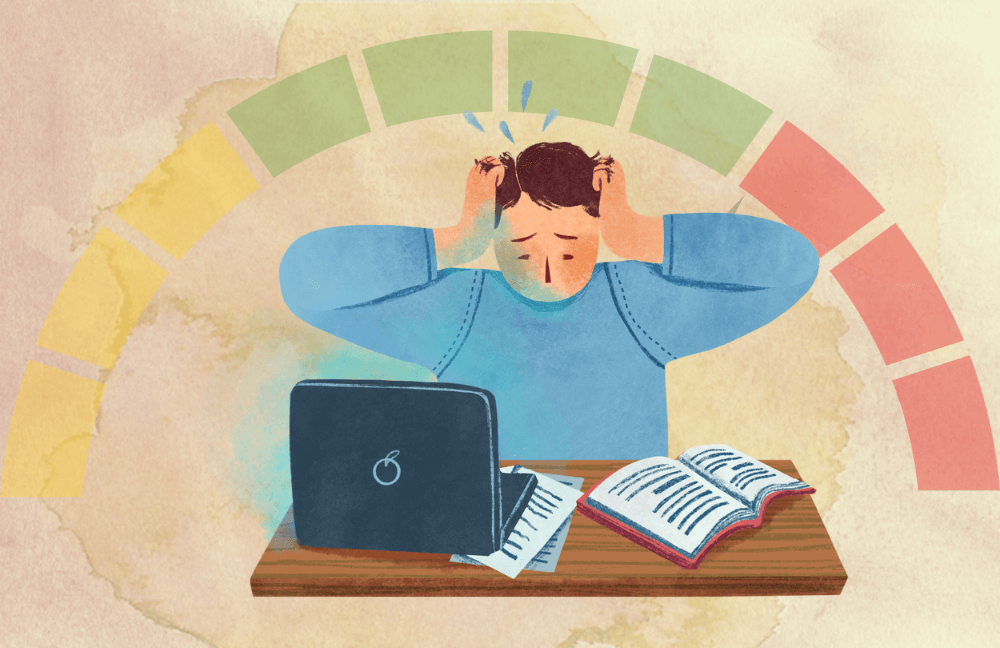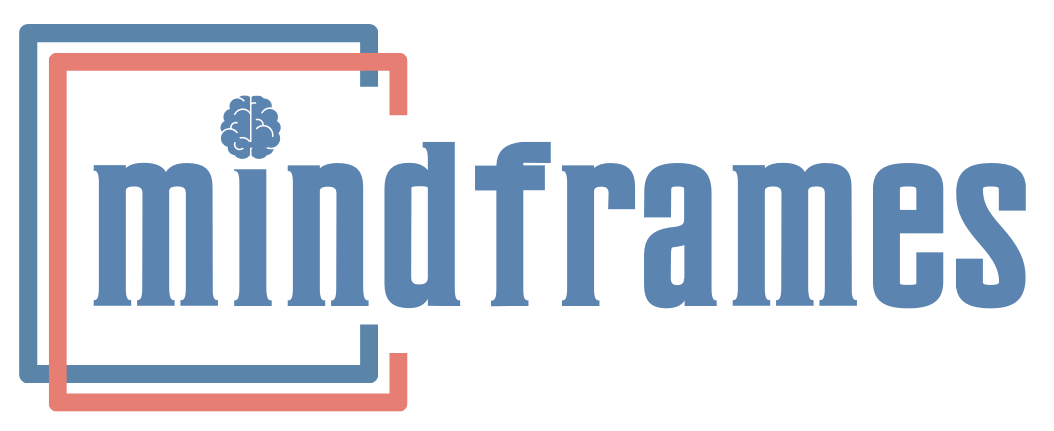Addiction Disorders
What is Addiction?
Addiction is when a person uses a chemical substance for pleasure, or indulges in some behavior for a rewarding effect, and this compulsive behavior continues even if there are disastrous consequences. All chemical substances as well as behaviors of addictive potential produce transient euphoria in the mind of the addict. Common culprits are alcohol, nicotine (smoking as well as smokeless tobacco chewing), cannabinoids, opioids, stimulants like cocaine and amphetamines; hallucinogens like LSD, mescaline and MDMA etc.
Many prescription medicines for sleep and ADHD management also stand the potential of misuse and abuse. Addiction behaviors include phone addiction, gambling, pornography or masturbation to name a few. The goal for the addicted individual or addict, is to get a reward or high, following which the behavior repeats itself with the desire to maintain and sustain that high (which rarely happens). That’s why addiction is a problem, and is not a viable solution to life’s problems; even if it appears to combat stress in the shorter term.
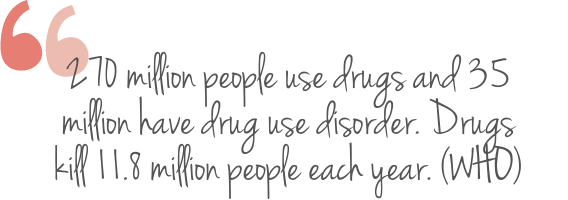
Who is at Risk for Addiction and Substance Use?
Addiction is a long-standing relapsing problem that traverses the stages of preoccupation, intoxication and withdrawal. These three, feed into one another and an individual graduates from being a user to abuser to addict to dependent. Once used to gain a rewarding feeling, the substance or behavior is later indulged in, to prevent the toxic withdrawal reactions that occur when one doesn’t get enough.
Invariably, 100% of people with addiction to a behavior or substance, start with the notion of trying it out for enjoyment, engagement or entertainment. And they have no clue that they’ll get habituated. Addicts who actually go on to develop a disorder usually have a genetic, biological, psychological or environmental vulnerability; or a combination of some of these. Without doubt, they are ones who welcome risks and get addicted.
Genetic
Biological
The reward center in addicted people’s brains is wired differently such that their response to dopamine (reward chemical) is extraordinary. Their reaction to outside stressors is peculiarly negative too. Substances and risky behaviors become a good escape from stress and can promote momentary relaxation, owing to aberrant dopamine responsiveness.
Psychological
Environmental
Social animals that human beings are, most initial substance use or gambling behaviors are in response to peer pressure. Accessibility, affordability and availability further enhances the probability of increased use. Some cultures sanction daily alcohol consumption for socializing, while in several settings, cannabis use is endorsed. Loneliness also influences addiction.
Is Addiction A Serious Problem?
What are the Symptoms of Addiction?
Addiction: Emotional Signs
- Irritability, frustration, outbursts
- Moodiness and swinging moods
- Not being in control of emotions
- Impulsivity and reckless attitude
- Restless when trying to cut down
Addiction: Physical Signs
- Neglecting self-care, food, sleep
- Poor hygiene and general health
- Change in the quality of sleep
- Appetite and weight changes
- Physical illness due to overuse
Addiction: Cognitive Signs
- Preoccupation with the addiction
- Confusion and memory lapses
- Impaired decisions and judgment
- Irrational and illogical thinking
- Disconnected from everything
Addiction: Behavioral Signs
- Spending time on procurement
- Lying to conceal the problem
- Neglecting everyday obligations
- Using in situations that are risky
- Use in spite of bad consequences
Treatment of Addiction and Substance Use Disorders
Addiction and Substance Use Disorders are treatable. People doubt if they can ever give up the forbidden fruit once tasted and relished, but with a sustained supportive approach, remission is possible. Addiction affects several aspects of a person’s life and functioning, so management must target all of these to attain abstinence and prevent relapse.
Medical management is best done in an in-patient or hospital setting when the degree of chemical substance dependence is high. Alternately some people can also connect with the treating expert for daily assessment and monitoring of any non-serious medical impact. Psychotherapy forms the mainstay of management of the psychological components of impulsivity, frustration and co-existent anxiety and depression, which are common.
Psychotherapy (or therapy as is better understood) focuses on changing negative views of yourself, others, and the world at large. Cognitive techniques include CBT (Cognitive Behavioral Therapy), REBT (Rational Emotive Behavior Therapy), ACT (Acceptance and Commitment Therapy), Humanistic techniques like EFT (Emotion focused Therapy) and mindfulness, to name a few. All of these work on dysfunctional thoughts, emotions and behaviors that contribute to negative mood states and unhelpful cravings.
Addiction Therapy Goals
- Change negative perceptions
- Inculcate healthier coping
- Battle negative mood states
- Identify substance triggers
- Manage substance craving
- Prevent and resist temptation
Addiction Therapy Outcomes
- Better incentives for change
- Improved life and social skills
- More meaningfulness in life
- Enhanced social networking
- Relapse prevention monitors
- Strengthened family support
Dr Shefali Batra's Help for Addiction
Addictions negatively impact all dimensions of life. And it’s easy for others to judge or blame the addicted person for their troubles. Addiction management demands empathic listening, unconditional acceptance, and respect for how you feel. It’s a medical problem and deserves medical attention and intervention. As a psychiatrist and psychotherapist practicing distinctive therapies, Dr Shefali guides you through cognitive, mindfulness and neurobehavioral milestones to help you think, feel and behave more purposefully.
Changing long standing thought processes, emotional reactivity and behavior patterns is not easy. With ongoing psychotherapy, empathic communication, hand holding support, cognitive challenge techniques, mindfulness training and continuous daily guidance and self-monitoring, the speed of self-change increases manifold. By changing maladaptive thought patterns, you begin to see the negative impact of addiction more realistically and feel motivated to make better choices. Therapy techniques target defeating thoughts and emotions that contribute to addiction. The net result is an optimistic view to life, a calmer mood state, and an addiction free existence.
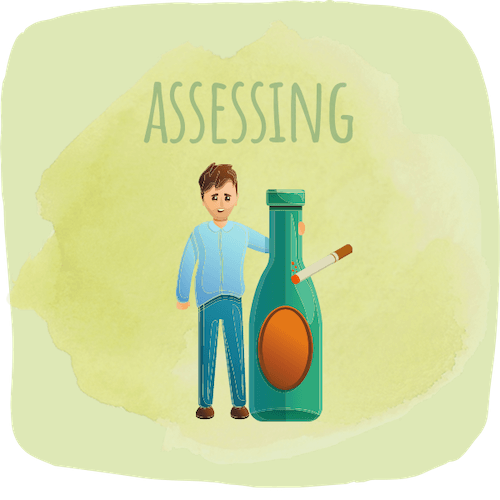
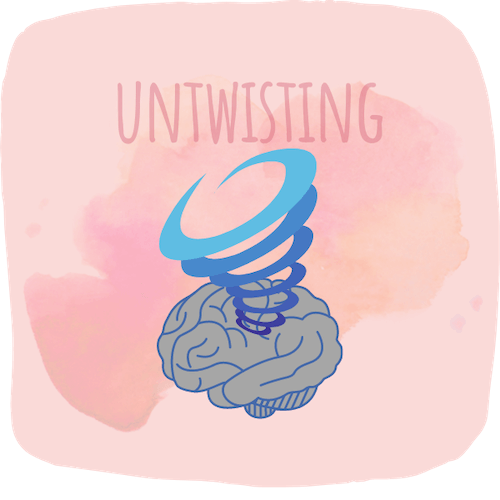
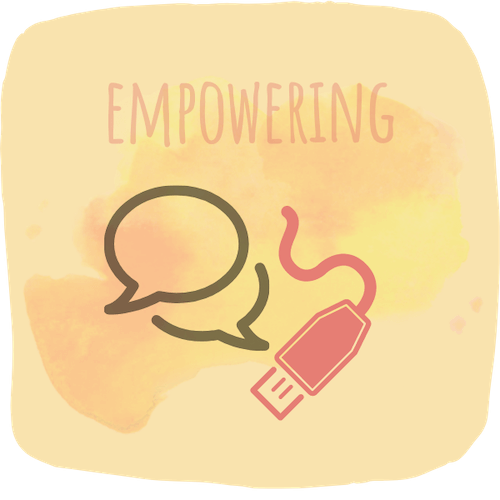
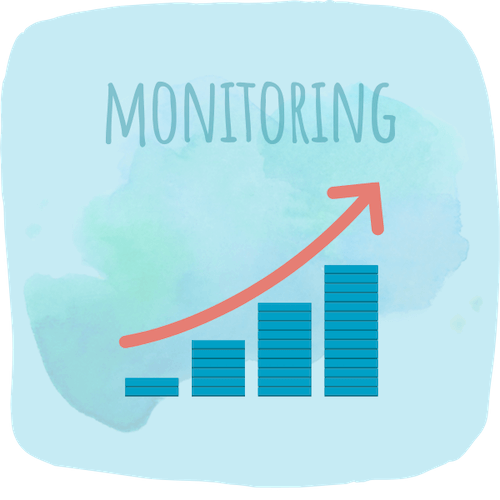
References
- American Psychiatric Association. (2013). Diagnostic and statistical manual of mental disorders (5th ed.). Arlington, VA: Author.
- National Collaborating Centre for Mental Health (UK) (2011). Common Mental Health Disorders: Identification and Pathways to Care. Leicester (UK): British Psychological Society, (NICE Clinical Guidelines, No. 123.)
- World Health Organization. (1992). The ICD-10 classification of mental and behavioural disorders: Clinical descriptions and diagnostic guidelines. Geneva: World Health Organization.
Latest Posts

7 Reasons Why You Should Seek Therapy
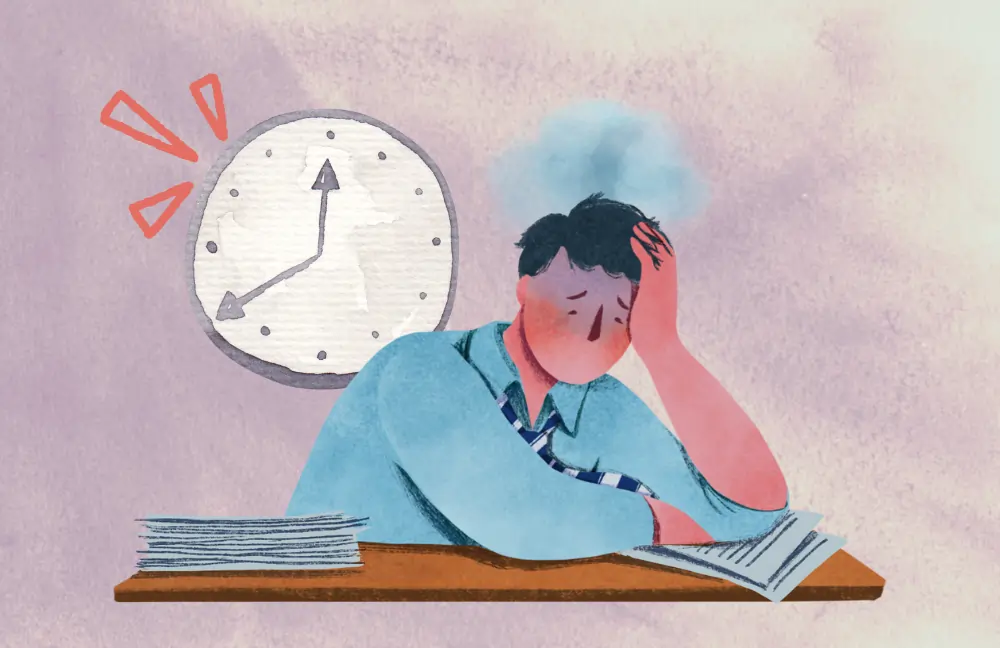
5 Time Wasters You Need to Overcome
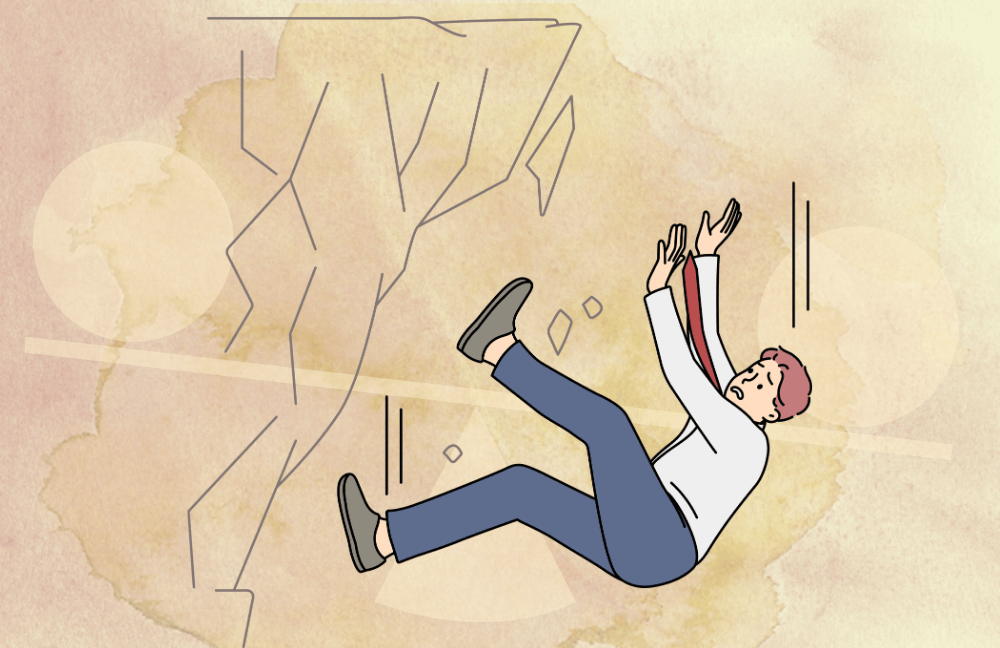
5 Signs you have no work life balance
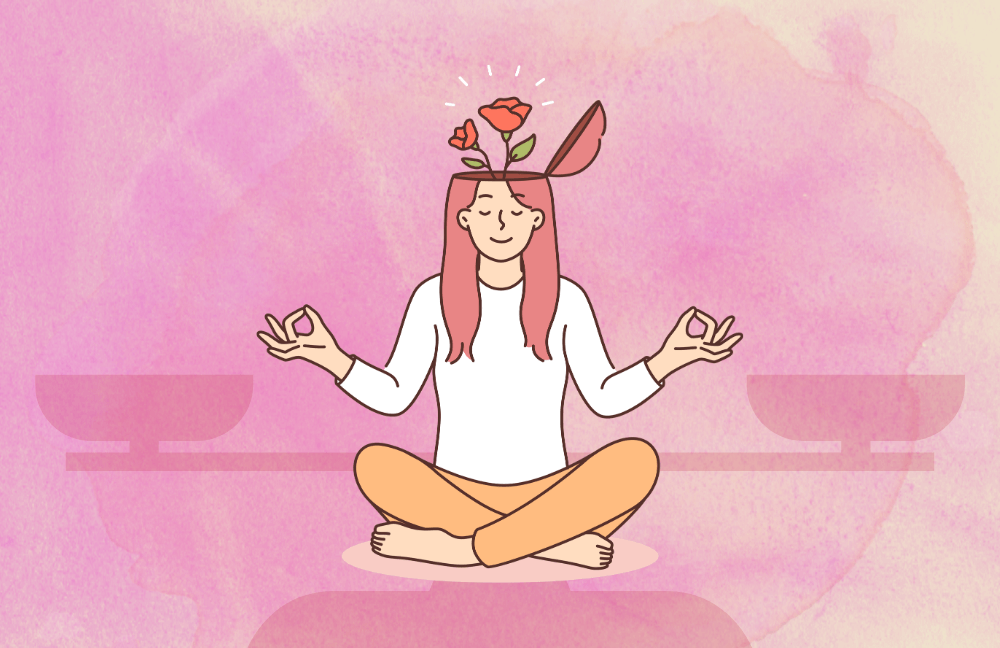
Work and Life: What is the right balance?
